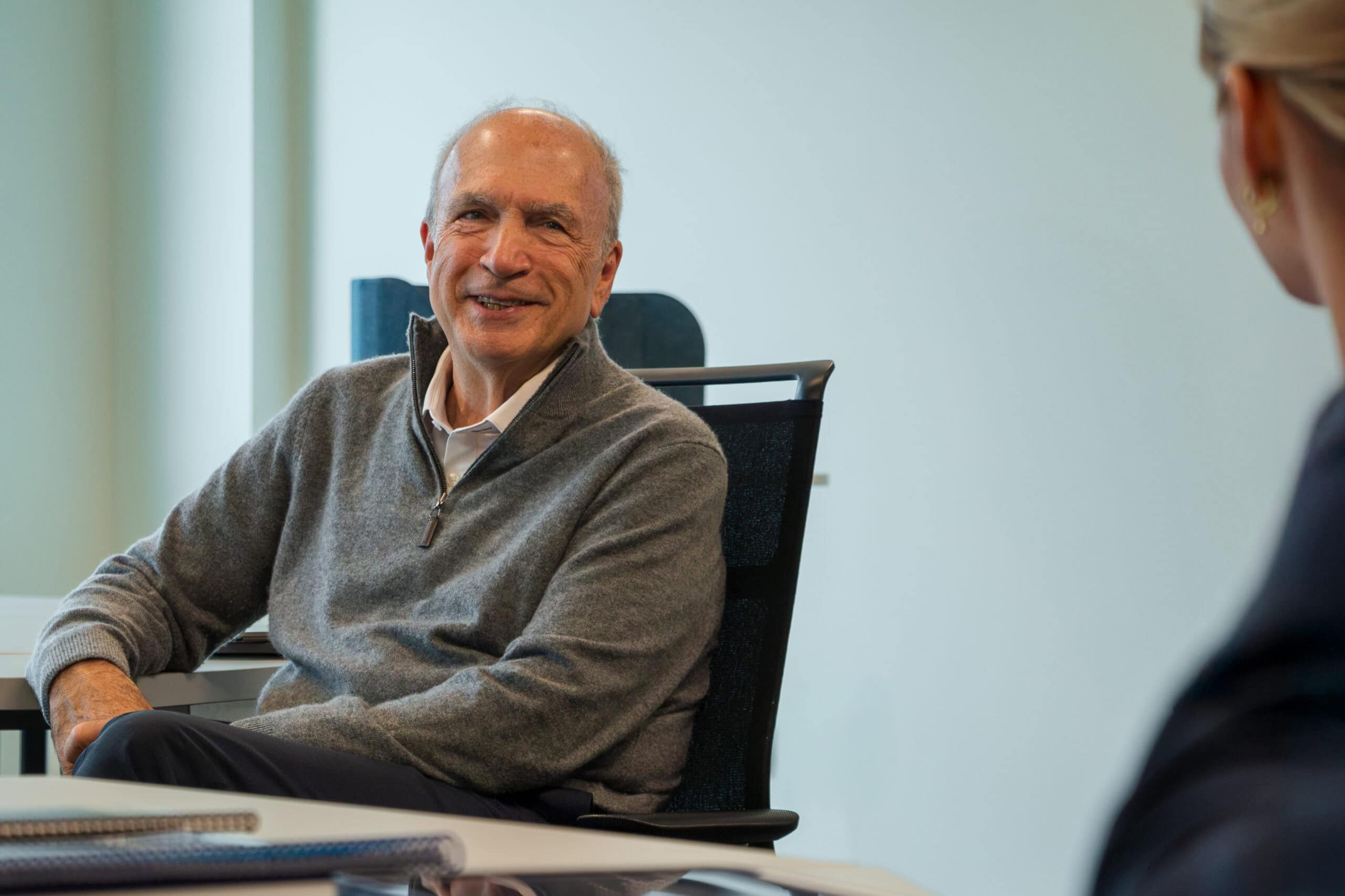1. Describe your role as the faculty lead for entrepreneurship. What does a day in the life look like for Dr. Ervin Starr?
I would describe my role as working collaboratively with the other faculty who are currently co-teaching entrepreneurship courses, reviewing and revising the curriculum, and ensuring every course within each quarter integrates into the other courses. You wear many hats as an entrepreneur, so integrating many different topics is not unusual for me. I also think about how to continue consistently integrating lessons and topics as we scale.
I will almost always kick my day off teaching unless it happens to be Speaking from Experience on Wednesday, which is a nice change of pace. When I’ve finished teaching for the day, I take a quick break before connecting with students who ask to meet about classwork or business concepts, or sometimes just to ask me tough questions and see if I can answer them! The last part of my day focuses on prepping, planning, grading, and connecting with colleagues.
2. What can students expect from you in the classroom?
Something that stuck with me was, early on, one of my students said, “You’re the same person in the classroom as you are out of the classroom.” So, students can expect that there will be joking, humor, and maybe too much sarcasm. There will also be a dialogue when I ask questions, expect answers, and call people out to participate. There’s going to be group work. Often, I’ll try integrating unconventional elements like objects to convey lessons or metaphors. When I’m teaching, I’m trying to keep students engaged, so there’s a mix of small group feedback discussions and me teaching new content. I like to keep a bit of flexibility and follow the conversations where they lead.
3. When did you first feel a spark of your entrepreneurial spirit, and how did you know it was something you wanted to pursue?
Somewhere in college. I was a first-generation college student. By and large, everyone in my extended family worked at a plant or owned their own small business, and at the time, I didn’t want to do either. So, I thought I’d go to college to give myself different options, and during that time, I started to see that I liked taking ideas, making them real, and starting things. I would get bored after I started, but I liked asking, “What would I start? How would I start that? OK, let’s make that happen”. And so I began that journey and began saving money. My wife and I have always lived on a budget; part of the budget was money being set aside for a business one day. Fast forward 10 years, and at 30 years old, I finally said I was ready to do it. I have some means to do it and think I’m responsible enough. And so, I leaped at that point.
4. When you are looking ahead, what skills or mindsets do you believe will be critical for aspiring entrepreneurs to succeed?
A few answers jumped into my head. The first is what we teach in our class, Entrepreneurial Mindset – that mindset is more about a way of viewing the world. We all have lenses through which we view the world, which can be driven by the disciplines we study. I was an economics and finance major, so even though I’m decades away from that education, I will still look at the world through an economic lens because it’s ingrained in me. Other lenses come from the world we exist in. For example, I was born to teenage parents who struggled to get through high school, so I see education as a way out, versus a third, fourth, or fifth-generation college student who believes that’s just the next step in life. I think education can be a leveling field. Entrepreneurship is similar. An entrepreneurial mindset is a lens anyone can use regardless of the vocation they pursue, their career, their subject matter, interest or expertise, or their unique skills.
The next is risk assessment. Understanding how risky something is now, how risky it feels, and how risky it really is. And then, understanding the upside as well as the downside potential of those. There is a risk involved in business startups, and we can’t eliminate that. So, another important part is teaching resiliency or perseverance. To have students say, “If it doesn’t work the first time, that doesn’t mean I’m done”. It might be the 2nd, 3rd, or 4th opportunity. There is a lot of success that comes through previous failures.
5. What role you do think entrepreneurship plays in building a sustainable and healthier community? How do you impart that vision to your students while teaching in the classroom?
I talk a lot about business as a force for good and a kind of ethical practice or behavior in class. For business to be healthy in the community, I think we must ask some questions about not just how we do business but why we’re doing business and what businesses we get involved in. Entrepreneurship inherently feels like it creates opportunities for those who may have less because of life circumstances, family background, or societal biases. Whether that’s gender or whether that’s race or economic standing, there is a sense that entrepreneurship does some leveling of the playing field, and I think that’s important. Also, it tends to be a driver of economic health in the sense that strong, good entrepreneurial cultures or communities mean there is consistent investment. Those communities ask, “What other services, what other products could make this a better place to live?”



